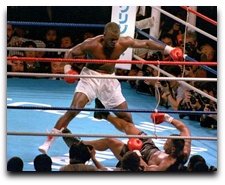 The Japanese government has not allowed PlayStation Network to be activated for Japanese gamers yet due to security concerns, and now an expert is advising Australia to follow suit.
The Japanese government has not allowed PlayStation Network to be activated for Japanese gamers yet due to security concerns, and now an expert is advising Australia to follow suit.
Professor Bill Caelli told newspaper The Australian, “Why is it that in the IT industry enterprises certify themselves?” said Caelli, noting that PSN didn’t have the same restrictions, and added that the public has “no way of assessing the assurances given by the owners of the (PSN) system themselves”.
Reportedly, Australian privacy commissioner Timothy Pilgrim has been in contact with Sony, and has not judged yet whether Sony has given them enough information to restore PSN. His investigation will be an ongoing one as well, even after PSN is restored.
When it was discovered user information had been stolen during the PSN breach, the Australian federal government announced plans for a law forcing companies to disclose privacy breaches, although it was unclear when it might come into effect. Privacy minister Brendan O’Connor had stated:
“Sony isn’t alone. We’ve seen serious privacy-related incidents in recent months involving other large companies. All companies that collect customers’ personal information must ensure that the information is safe and secure from misuse.”
We’ll stay on this story as it develops.

 What Sony may be dealing with is the fact that they’re not top dog in the latest battle for consoles. Europe has taken to the PlayStation 3 better than the United States and they’ve got plenty of fans in the region. There has been a recent upside to it all, some light at the end of the tunnel:
What Sony may be dealing with is the fact that they’re not top dog in the latest battle for consoles. Europe has taken to the PlayStation 3 better than the United States and they’ve got plenty of fans in the region. There has been a recent upside to it all, some light at the end of the tunnel:
I think the easier way would be to just allow Sony to re-open the network; if they f*ck up again, the authorities should simply facilitate class action lawsuits 🙂
That way Sony will re-open only when they’re certain that they fixed it.